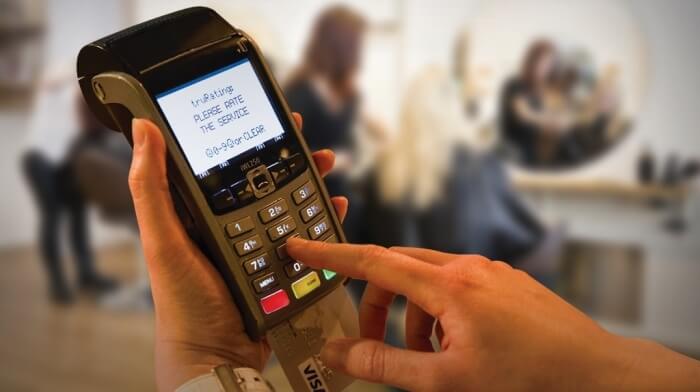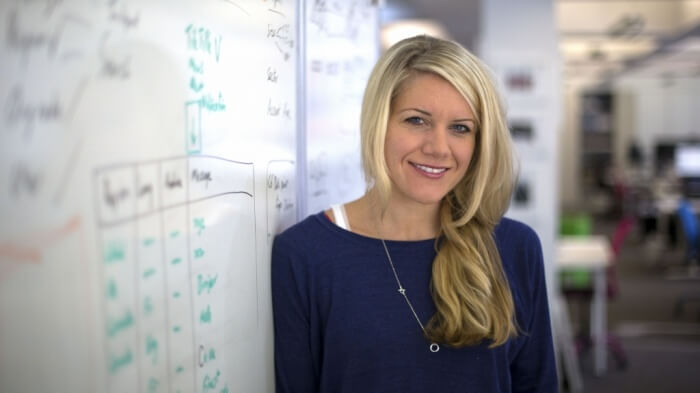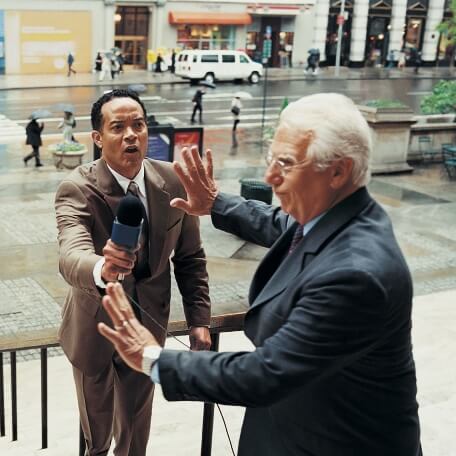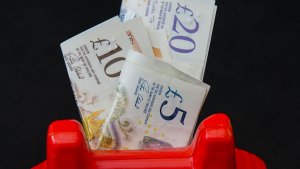Georgina Nelson raised nearly $20m for her customer review business TruRating despite being in the early stages of growth. She explains why the investors are right and doubters wrong.
How TruRating Secured $20m And Proved The Doubters Wrong
Georgina Nelson raised nearly $20m for her customer review business TruRating despite being in the early stages of growth. She explains why the investors are right and doubters wrong.
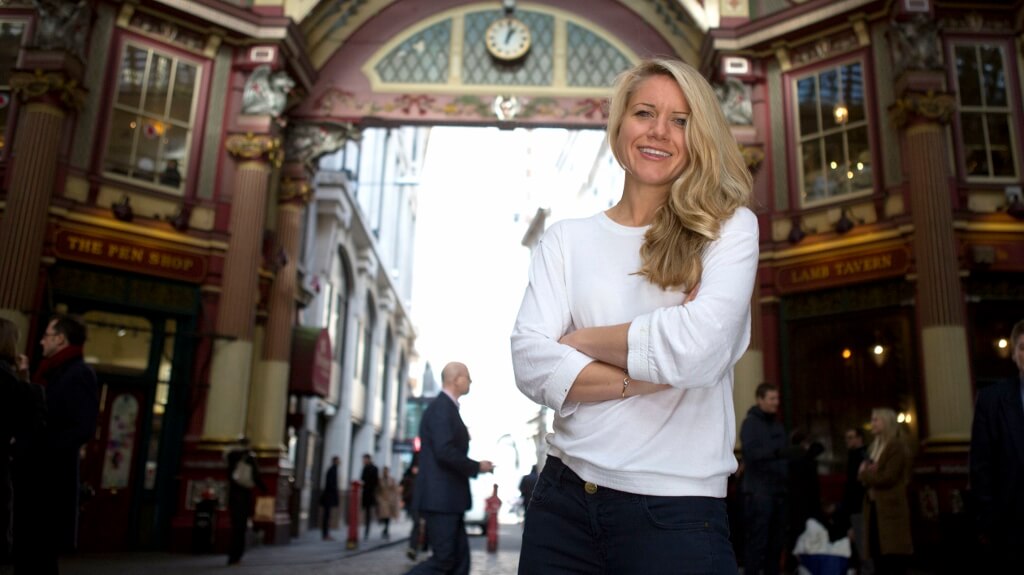
Georgina Nelson's business has collected more than 2 million snap reviews from retail customers as they buy products. The idea is to make customer reviews easier so more people are prepared to offer their view. She explains how this simple idea, plus a lot of hard work, has secured the business a multi-million pound funding package.
Describe your business.
TruRating takes the pulse of consumer sentiment via the payment terminal - asking each customer to anonymously rate an aspect of their experience on the keypad from 0-9, just before they pay. Using hardware that’s already sitting in shops and restaurants around the world, and that customers already interact with right at the point of payment.
As a result, on average 88% of us are rating when asked a question. For the first time, businesses are benefiting from mass, validated, representative feedback, daily. Consumers benefit from a trustworthy recommendations website with reliable ratings from thousands of consumers, helping them make informed decisions on where to shop, stay and eat.
Where did you get the idea for your business and why did you think there would be demand?
I’d had an idea nagging away at me for years and I decided I was going to make it happen when I was on maternity leave two and half years ago.
I used to be a lawyer at Which?, the Consumers’ Association, and it was there that I noticed that two markets in the review space were failing. The first was that of consumer review websites: consumers used them but ultimately didn’t trust them, because they could be so easily gamed with reviews written by the owner or a competitor.
There was also this large problem of representation – 1% of users of these websites provided 99% of the content, as the rest of us didn’t have the time to log on and write a review. The other market was that of reviews and consumer feedback collected to help businesses listen and learn from their consumers.
I learnt that on average businesses hear from around 1 in 1,000 of their customers – and that’s mostly complaints, heard days or weeks after the event.
I thought that if we could make feeding back to a business super easy and quick – and also tie it to a validated payment – then we would get mass, representative and trusted feedback. Asking just one simple question on the payment terminal before you paid seemed the way to go.
How has the business grown?
I really wanted to see if there was a market for the idea among retailers and restaurants, so I decided to walk the high street with my baby asleep in the pram and find out if shop keepers and restaurant owners wanted my idea. They overwhelmingly did, and so I started to plan how to make it happen.
My husband joined me, together with a school friend, our best man, my brother’s friend and a payments wizard. The six of us worked for no salary, with three of us taking it in turns to look after my daughter until we received our first set of seed funding in February 2014.
We were lucky enough to be introduced to a few angel investors early on – I remember writing to one on LinkedIn who said thanks but he was relaxing in his villa on the golf course. I then asked him to spend 1 minute 47 seconds watching our demo video, and bingo - he was in!
He brought many of our early team members with him from his earlier start ups, and that’s when things really got moving. Today, we have 53 employees across four markets and our last round of funding (‘Series A’) brought in £9.5m earlier this year.
How did you work with payments companies?
When we were just starting out, I paid for an experienced payment industry consultant to do some work for me on how we should get TruRating to market. His advice? Stop before we’d even started – we would never make it work.
Much of what he said was true—it has been really very hard to work with the banks and payment companies: security is key, and things take a huge amount of time, expertise and money. People say in the payments space, you can generally multiply the time it takes to get to market and sign a contract by three.
And it’s a fractured market, especially in the UK – so to offer TruRating to every merchant, we have to partner with a multitude of different companies, each with different technology and long roadmaps - and significant investment needs to be made upfront before the revenue begins to flow through.
It is getting better though: times are changing and companies are now far more open to innovation than they were a few years ago. There is a growing acknowledgement that startups can really add value as partners and build on their core services.
This year is all about getting out there and live with the big retailers and high street brands we’ve confirmed pilots with thanks to the strong payments partnerships we’ve established. We’re already live in the UK and Australia, and by the end of the year we’ll be live in Canada and the US too.
We’ve collected over 2 million consumer ratings so far and this time next year we should have close to 1 billion ratings in our sights.
What have been the major bumps in the road?
Back in the early stages we sailed very close to the wind a couple of times on funding. You get into the situation when the investor knows how much money you’ve got in the bank account and how long it will last, and their negotiation position grows all the stronger for it.
We’ve been biting nails looking at our online account waiting for the funds to hit before the last window for pay day, and have missed it. Letting down the team like that was sickening.
Also, making a couple of key hires which haven’t worked out. People come to you with incredible CVs, having held extremely senior positions at hugely impressive companies with years of experience – and you hope they’re going to come and make your life so much easier.
But it’s a totally different skill set and mindset to get a start-up off the ground. You need a hustle and an energy, and dogged tenacity like nothing else – and I’ve now learnt you need to look for that in a person instead.
How have you approached securing funding when you’re not making money yet?
Even when you’re not making money, I think you need to have a tangible, working prototype (or even better, something working out in the field and being actually used) and solid evidence from partners and customers that they definitely would want to pay you down the line.
We obtained market research from consumers and businesses about how they would use TruRating, and obtained initial letters of intent and contracts from partners. We also got some of our prospect customers and partners on the phone to talk to our investors to tell them what they liked about TruRating and our potential.
We’ve raised around $20 million, much of this at times when we had no revenue – I don’t think of it as a hurdle at this stage as you are selling the dream of what you are going to become and delivering an evidence base that shows it’s going to happen.
What’s your advice for other entrepreneurs who are in the same boat?
Given that you are bound to your investors for the foreseeable future – and they are so closely tied to the business achieving its vision – we have always tried to build a really strong relationship with each investor before we decide whether they’re the right fit for us.
Think of it as dating. Multiple coffees and dinners. You have to get to know them, how they would react in certain situations and what they think is important, and make sure that you’re aligned.
Another key challenge is to be prepared for the amount of time it saps from you and the management team. We have always run our own fundraising campaigns as it’s so personal – we couldn’t subcontract it out. But be prepared: you think your day job couldn’t get any busier – and then you have a fundraising campaign on top. There aren’t enough hours in the day.
What’s the hardest thing about running your own business?
Members of our team have left their very well paid, corporate cushy jobs to sit on £15 Ikea chairs in a cramped attic office based on a shared dream we pitched to them. It’s a huge emotional responsibility, and I owe everything we are today to the faith they put in me to deliver.
So people issues, making sure all those people who believed in TruRating are still happy with their job and their lives, are amongst the hardest parts of the job - because if people aren’t feeling positive, I haven’t held up my side of the bargain. It’s also the most fulfilling aspect.
There’s nothing like looking around the team during one of our Friday 'TruAchievements' sessions, when we all gather together to share the big milestones of the week, and seeing that everyone is equally excited by our potential and has the same determination to make it happen.
We say it’s not like a job joining TruRating, it’s more like a way of life, a calling. For a chapter of our lives we have to give everything we have.
We have the most amazing opportunity to absolutely smash it – globally – no one does what we do, and we have pretty much unanimous merchant demand, in every market, with every bank wanting to offer it to their merchants, and 99% of consumers say they would use our consumer website (33% instead of the likes of Yelp! And TripAdvisor).
There isn’t a reason I have found yet which means we shouldn’t change the world – and that is quite sobering. As one of our technical architects says – you have these moments of ‘getting scared in the shower’ with the enormity of it all. I am constantly thinking am I doing enough?
I should be doing more and instead of sleeping I should be working. With our rapid growth into international markets, there is a team working on TruRating 24 hours a day, and the temptation is to try and do the same.
What is your biggest mistake?
Looking back on it I’ve made a fair few of the elementary ones – taking money from people who in retrospect I shouldn’t have, working with friends which adds extra pressure and emotion into the mix, and hiring people who weren’t the right fit.
The emotional energy that people issues take up is such a huge strain on the business – and when I look back to the progress TruRating and I have made when those types of issues knock you sideways, everything else seems to slow down too.
How do you recruit, how do you inspire your people and what incentives do you give them?
People have to be pretty excited to join TruRating. We have this thing called TruInsomnia, which means we listen on the second interview to hear whether candidates say they haven’t been sleeping because they’re so excited about the potential of what we do.
We need that excitement as it what will carry people through the times when they’re really knackered, working super hard, facing delays or problems, don’t have a PA or that company car, and are thinking about easier jobs which aren’t as intense as ours.
Those who come through the interview process to join TeamTru all have a common goal – we know we are going to change the world, and we’ll work as hard as we can together to make it happen. It’s also key that everyone owns part of the business, that they get to share in it’s success – and this drives a certain mentality – people really care.
Another key element in our company ethos is making sure the team feel able to balance the important things in life and work, and find time for both.
Some of the team come in early so that they’re always home for bath time, or vice versa; some do the morning school run but pick up more work later in the day. For others, it’s missing rush hours to improve their commute or to get their marathon training in.
We don’t have fixed policies on this. Everyone is trusted to do their job and deliver results. People are happy because they can be there for life’s most important moments: first steps, school concerts, the big game. It was a key reason I wanted to start my own business, and everyone else should benefit from this flexibility too.
What are your top three tips for people starting a business today?
Test out the market for your product as soon as you can, before you make the leap. Speak to the people who are going to put their hands in their pockets and buy it – what are their challenges, what problem are you going to solve, how badly do they want it and how much would they be willing to pay.
Try not to approach things with previous businesses processes in mind. There’s a reason why start ups can quickly scale to become to be the biggest and most successful companies in the world – that’s because they approach things differently, not shackled with how things have been done previously.
Bite the bullet. As one of my investors says to me, ‘you’ve got to break eggs to make an omelette’ – so just do it and see what happens. If nothing else, it will be one of the best learning curves of your life.
Thanks for signing up to Minutehack alerts.
Brilliant editorials heading your way soon.
Okay, Thanks!